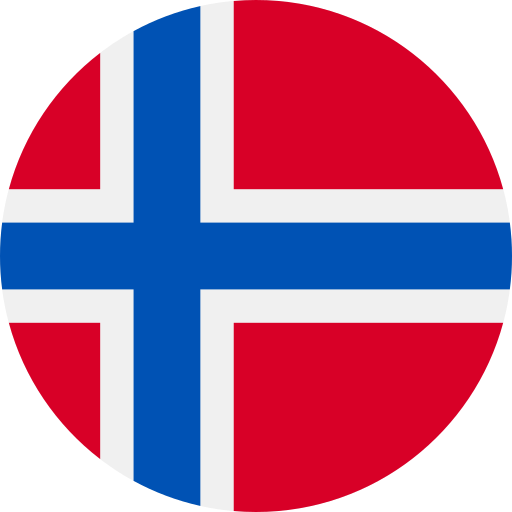Key Takeaways
- Importance of Norwegian Language: Understanding Norwegian is crucial for fostering trust and effective communication in international trade, especially with Norway’s key industries like shipping and oil.
- Cultural Respect: Speaking Norwegian demonstrates respect for partners’ culture, which can enhance relationships and lead to successful negotiations.
- Market Opportunities: Proficiency in the language opens access to Scandinavian markets, providing valuable local insights that improve business strategies.
- Competitive Advantage: Companies fluent in Norwegian differentiate themselves from competitors, enhancing their market position through better engagement with local clients.
- Challenges of Language Variants: Mastering both Bokmål and Nynorsk can be essential yet challenging for effective communication across different regions of Norway.
Ever wondered how the Norwegian language can boost your success in international trade? As global markets expand, understanding local languages has never been more crucial. Norway’s unique position in shipping and oil industries makes its language a valuable asset for businesses looking to forge strong connections.
Navigating trade agreements or communicating with Norwegian partners can be tricky without a grasp of their language. By embracing the Norwegian language, you’re not just breaking down barriers; you’re also enhancing trust and fostering better relationships. In this article, we’ll explore why mastering Norwegian is essential for thriving in international trade and how it can give you that competitive edge. Ready to dive in?
Overview of Norwegian Language in International Trade
Understanding the Norwegian language plays a crucial role in international trade, especially given Norway’s significant contributions to shipping and oil industries. Mastering this language enhances communication and strengthens partnerships with Norwegian businesses.
Importance of Language in Trade
Language serves as a bridge in trade relationships. It fosters trust and allows for clearer negotiations. When you communicate directly in Norwegian, it shows respect for your partners’ culture, which can lead to stronger alliances and more fruitful collaborations. Effective communication minimizes misunderstandings that could derail deals or create tension.
Role of Norwegian in Global Business
Norwegian is increasingly important within global business contexts, particularly for companies engaging with Scandinavian markets. Norway’s economy thrives on natural resources and advanced technology sectors. Familiarity with the language opens doors to new opportunities, enabling you to tap into local insights that may not be readily available through translations alone. Engaging fluently can differentiate your business from competitors who overlook this vital aspect of cultural exchange.
Leveraging the Norwegian language enriches your interactions within international trade, positioning you favorably amid global competition while also enhancing mutual understanding and cooperation.
Historical Context
The Norwegian language plays a significant role in international trade, especially given Norway’s key position in global shipping and oil industries. Understanding its evolution provides insights into how it shapes business relationships today.
Evolution of the Norwegian Language
Norwegian has undergone considerable changes over centuries, influenced by various historical events. From Old Norse roots to modern-day variants, the language reflects Norway’s rich cultural heritage. The unification with Denmark introduced Danish elements, while the 19th century saw movements towards establishing a distinct national identity through language reforms. Today, two standardized forms exist: Bokmål and Nynorsk. Mastering either variant can enhance communication in trade negotiations and foster better partnerships.
Key Trade Partners
Norway engages extensively with countries like Germany, the United Kingdom, and China. These nations represent major markets for Norwegian exports such as seafood, machinery, and energy resources. By understanding Norwegian or having access to skilled translators proficient in the language of your partners, you can navigate these markets more effectively. This linguistic advantage not only aids in clearer negotiations but also strengthens trust among trading partners—an essential component for successful international business transactions.
Current Trends
Norwegian’s role in international trade continues to grow, reflecting Norway’s strategic position in global markets. Companies engaging with Norwegian partners gain a competitive edge by leveraging language skills for improved communication and stronger relationships.
Use of Norwegian Language in International Business
The use of the Norwegian language enhances business interactions across various sectors, particularly shipping and oil. Understanding Bokmål and Nynorsk can facilitate smoother negotiations, enabling clarity that fosters trust. Many organizations are increasingly recognizing the value of bilingual employees who can navigate both local dialects. This approach not only enriches partnerships but also demonstrates respect for cultural nuances, which is crucial when establishing long-term alliances.
Impact of Globalization
Globalization has amplified the importance of the Norwegian language in commerce. As businesses expand into Scandinavian markets, knowledge of Norwegian becomes vital for effective engagement. The rise of digital communication platforms allows companies to connect with local talent quickly while ensuring messages resonate culturally. Moreover, as international collaborations increase, so does the demand for professionals fluent in multiple languages—including Norwegian—further solidifying its relevance in global trade dynamics.
Opportunities and Challenges
Understanding Norwegian in international trade presents both opportunities and challenges. Mastering the language can enhance communication with partners, driving better relationships and successful negotiations.
Advantages of Using Norwegian
- Improved Communication: Speaking Norwegian allows you to convey messages clearly, minimizing misunderstandings during negotiations.
- Cultural Respect: Demonstrating knowledge of the language shows respect for your partners’ culture, fostering goodwill and trust.
- Market Access: Proficiency in Norwegian opens doors to new markets within Scandinavia, providing access to local insights that can inform your business strategies.
- Competitive Edge: Companies fluent in Norwegian stand out from competitors, enhancing their market position through effective engagement with local clients.
Barriers and Limitations
- Language Variants: Understanding both Bokmål and Nynorsk can be challenging but necessary for effective communication across different regions of Norway.
- Resource Availability: Finding qualified translators or voiceover talent who are fluent in Norwegian may prove difficult, especially in niche industries.
- Time Investment: Learning a new language requires time and effort, which could divert focus from other critical business operations.
- Cultural Nuances: Each region may have unique expressions or idioms that don’t translate directly, complicating interactions without sufficient cultural understanding.
Navigating these advantages and barriers effectively can significantly impact your success when engaging with Norwegian-speaking partners in international trade.
Conclusion
Embracing the Norwegian language in international trade can significantly enhance your business prospects. By facilitating clear communication and demonstrating cultural respect, you position yourself favorably among Norwegian partners. This not only strengthens relationships but also opens doors to new opportunities within Scandinavian markets.
As global dynamics evolve, staying attuned to the importance of language becomes essential for success. Whether you’re mastering Bokmål or Nynorsk or collaborating with skilled translators, your efforts will pay off in richer interactions and improved negotiation outcomes. Ultimately, investing in language skills is a strategic move that can set you apart from competitors while fostering lasting alliances in Norway’s thriving industries.
Frequently Asked Questions
Why is learning Norwegian important for international trade?
Understanding Norwegian enhances communication with Norwegian partners, fostering trust and better relationships in trade. This can lead to clearer negotiations and stronger alliances, ultimately improving business outcomes.
What are Bokmål and Nynorsk?
Bokmål and Nynorsk are the two standardized forms of the Norwegian language. Familiarity with both variants can enhance communication during trade negotiations, allowing for a deeper understanding of local nuances.
How does mastering Norwegian benefit businesses?
Mastering Norwegian provides a competitive edge by facilitating smoother interactions and demonstrating respect for cultural differences. This can open doors to new opportunities in Scandinavian markets.
Who are Norway’s key trade partners?
Norway’s main trade partners include Germany, the United Kingdom, and China. Understanding the language helps navigate these markets effectively and strengthens partnerships.
What challenges come with learning Norwegian for business purposes?
Challenges include the complexity of language variants, finding qualified translators, time investment to learn the language, and navigating cultural nuances—all crucial for successful interactions in international trade.







